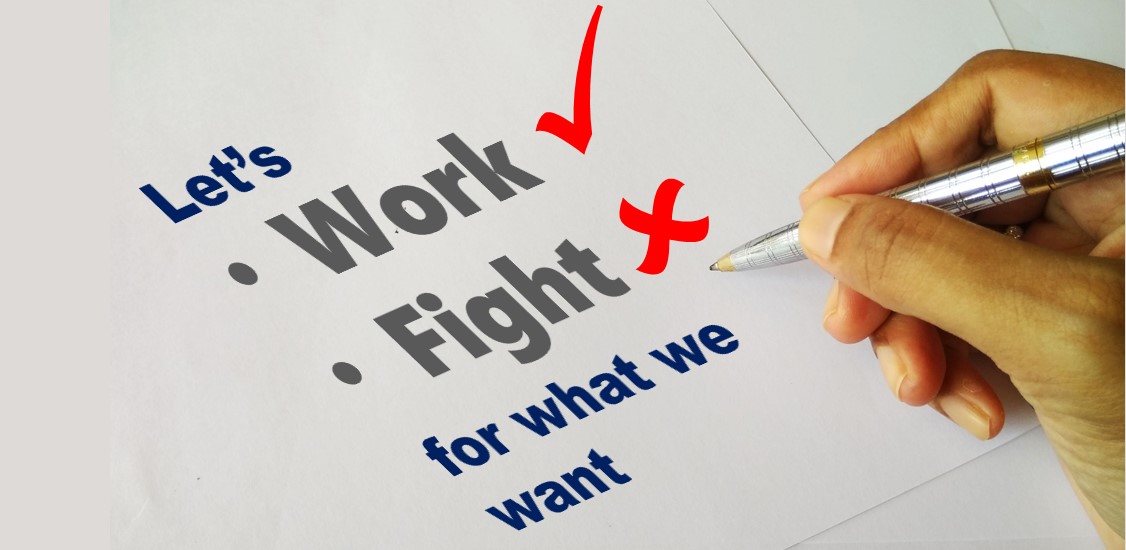For Indians in Malaysia, as minorities and as a community with a significant share in the economically-challenged portion of the society, the choice facing our households and individuals is often between working hard for what we want OR fighting hard for what we want.
My personal experience points to a strong demarcation between these two distinct cultures in terms of the impact on actual economic progress and general well-being. Those who believe in working hard for what they want always benchmark themselves with other progressive communities in the country. They work hard to increase both outputs and efficiency in their line of work and business so that they can be as competitive as the best in the country. They apply the same in academics, society and leadership.
On the other hand, those who are brought up to fight for what they want believe in benchmarking themselves with people who they think have access to special privileges and entitlement. They then spend time and energy demanding that they be accorded similar privileges. They also spend a lot of time trying to influence others to think along these lines where if you show enough dissent and throw enough criticisms and demand enough attention, you will be accorded these special arrangements which makes actual effort unnecessary. I think that the latter is a dangerous trend.
Too much fighting – whether it is for one’s interview offer, one’s employment opportunities, one’s civil service appointment, one’s political position, one’s university placement, one’s language, one’s religion etc – will breed a generation of fighters and activists who will require a lot of resources (time and money) from the community to constantly fight for causes whose results if any, are always short-lived because no one really likes to be forced to give in.
The question for all of us at this point is, how long are we going to be fighting? Why are we even fighting in the first place? Had we been economically progressive all these while, and had we built our own share of industries and businesses today, issues of discrimination in hiring and promotion at workplaces would never be an issue. Had a larger number of our students been top scorers in national exams, getting a higher number of placements in public institutions of higher learning would never be an issue. If we had always been united on the political front with none in our community enriching themselves at the expense of menial labourers and voiceless pawns among us, having a strong and influential political representation today would never be an issue.
The problem with fighting instead of working for one’s goals is that it teaches people to ask for more than they deserve. We do a little, but expect huge returns. It teaches people not to improve but to demand. It teaches us to focus on shortcuts. It teaches us politicize each and every event. It teaches us self-pity. More sadly, it teaches us to disregard actual opportunities and look down on hard work and merit.
I saw these sentiments way too often as a teen. Saw them as a twenty-something. Saw them as a thirty-something and now am seeing it again. ‘We are discriminated! We are short-changed! We are side-lined!’ - the tune and the chorus have always been the same. And every time, it just delivers the message of doom, that we are being increasingly marginalized and therefore, we must fight, rebel, take things into our own hands and set things right. But no amount of fighting has brought any change except a new bout of leaders who ride the tide and disappear. All it does is promote anger among the strong, and fear among the timid, while keeping suspicion, disharmony and hatred brewing on all fronts.
My take away as a Malaysian Indian is that, we only have ourselves for us. Instilling the right attitude among our young – that is to work hard and compete in education and business – is the way to go. Trying to depend on the government for handouts, allocations, jobs and life opportunities is wrong and such mentality must be curbed.
Many argue that as citizens and tax payers, why are we not entitled to many a special privileges. Yes, we pay tax monies, but only a very small portion. Most tax income comes from state owned enterprises, and not individuals. And tax monies are for public facilities – national security, internal security, health facilities, free schooling, roads, administrative services, etc. Just because we pay some tax and just because someone in the community scores a string of As or wins an overseas award doesn’t entitle the entire community to privileges, handouts and rewards.
So, moving forward, we should be wary of the overzealous among us who promote the ideology of fighting for rights and privileges. Left unchecked, they will influence way too many young people to follow in these footsteps – destroying a century of hard work and reputation built by our forefathers and reducing the collective energies required to build our own economic strength during these challenging times.
In the spirit of meritocracy and love for our country, let’s cease the sentiments centered around rights and privileges and replace those with ideas directed towards building and developing ourselves in many new and promising sectors of a global economy. Let the work begin!
